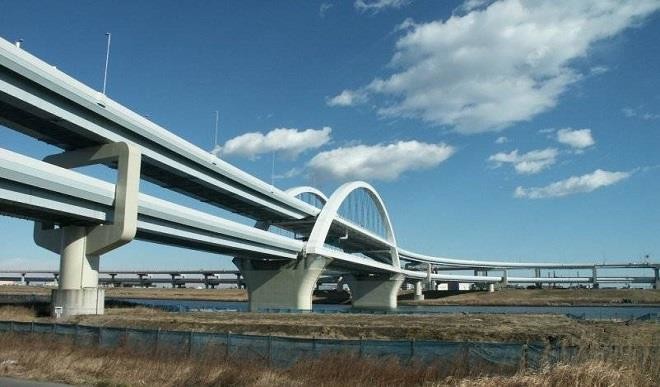Expectations heighten on Lagos 4th Mainland Bridge
The discussions around the possibility of having a 4th mainland bridge in Lagos reached fever pitch level under the administration of former governor Babatunde Raji Fashola, now Minister of Power, Works and Housing. The current Lagos State Governor, Akinkumi Ambode, has continued in the same trajectory since coming into office 10 months ago, thus keeping […]


The discussions around the possibility of having a 4th mainland bridge in Lagos reached fever pitch level under the administration of former governor Babatunde Raji Fashola, now Minister of Power, Works and Housing.
The current Lagos State Governor, Akinkumi Ambode, has continued in the same trajectory since coming into office 10 months ago, thus keeping faith with his campaign promises.
He said: “Former President Goodluck Jonathan refused to append his signature to the project and you cannot actually carry out such a gigantic project without the approval of the federal government. However, I want to assure Lagosians that we would continue the push and hopefully if our party wins the presidential election, Abuja will be more disposed to it,” he had said during campaign.
The consideration of a 4th Mainland Bridge became increasingly interesting to Lagosians because of the hardship they endure as a result of limited options for commuters who are trapped in traffic gridlock for several hours thereby impacting negatively on their turnaround time.
On Thursday’ April 14, Ambode met with residents of Ikorodu during the quarterly Town Hall Meeting, which is the 3rd in the series since the commencement of his administration on May 29.
The governor said before the end of May, 2016, the state government will formally sign a Memorandum of Understanding (MoU), with investors for the construction of the proposed 4th Mainland Bridge. He further said that once the MOU is signed, work would begin on the project, emphasizing that the project would go a long way to boost the economy of Lagos East Senatorial District.
He said: “Many investors have shown interest in the actualization of our dream for the 4th Mainland Bridge which will run from Ajah to Ikorodu to Isawo and berth at Ojodu, Ikeja back to the Ibadan expressway. By the grace of God, we will sign an MOU and commence action before May 29.”
The comment by the governor is coming within weeks of a similar disclosure that the Lagos 4th Mainland Bridge may soon become a reality if the collaboration of the federal government and the Lagos State government to woo private investors.
The Lagos State Commissioner for Works and Infrastructure Ganiyu Johnson and the Commissioner for Transportation Dayo Mobereola in a recent interview said the interest of the federal government through its Ministry of Works has been drawn to the project and the parties are currently seeking investors who would speedily finance the plan.
Johnson said: “Discussions are on-going with would-be investors on a BOOT (Build, Own, Operate, and Transfer) arrangement to fine-tune the best option in the interest of Lagosians.
“A city like Lagos needs so many bridges I have discussed with him (Fashola) about the Fourth Mainland Bridge and that was also part of the issue he discussed at the PENCOM commission in Abuja,” Mobereola revealed.
The bridge is expected to cost government up to N10 billion as compensation to house owners at Olokanla, Ajah, whose property are situated on the way to the bridge head, apart from those along Ikorodu and Ijede, which it was learnt, would gulp over N5 billion, also as compensation.
The bridge is expected to be constructed at about N40billion per kilometre. It would link Ikorodu to Ajah axis of the state.
Lagos residents now believe that with the actualization of Lagos State dream of having the central government and the state government aligning on same political party and even the good fortune of having the principal proponent of the 4th Mainland Bridge now the minister for Power, Works and Housing, the discussions around the issues serving as a stumbling block should begin to make way.
Speaking with Daily Trust on the issue, Engineer Gabriel Gilbert said, “If this much-publicized plan for the construction of bridge that has been considered as a project capable of providing a sustainable solution to the perennial traffic bottleneck in Lagos has to see the light of the day, then discussions around the issues raised by the immediate past administration have to be hastened and concluded as government is a continuum”.
Fashola on his part has urged the National Pension Commission (PenCom) and other operators to invest the over N5 trillion pension fund in construction of infrastructure with particular emphasis on roads, housing, Fourth Mainland Bridge, coastal road linking several coastal states from Lagos to Bayelsa and the new seaports in Lekki and Badagry.
Fashola, who lamented infrastructure deficit in Africa, said: “This is the time to show that our nation and our national economy are bigger than the challenges posed by dwindling oil prices; this is the time to diversify and change the face of our economy. But the risks that stand in the way of investing the fund are caused by us and they must be changed by us.”
The Lagos State government had to alter the design of the much awaited 4th Mainland Bridge along the Lekki Peninsula owing to this concern. The former state commissioner for Works and Infrastructure, Obafemi Hamzat, explained that not less than 69 structures have been built on the initial alignment for the construction of the bridge. He added that the rapid springing up of the buildings on the alignment forced the government to consider a redesign of the alignment to avoid massive demolition and payment of huge compensations.
